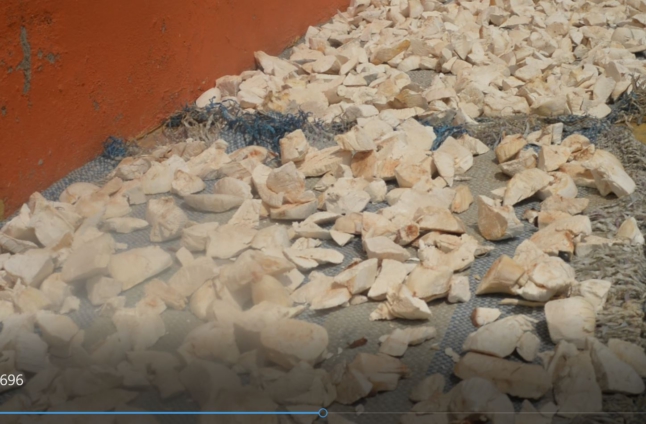Did you know consuming traditional staples like 'Konkonte' processed through solar or sun drying, could reduce your blood sugar levels and lower the risk of heart diseases?
A research conducted by the Department of Food Science and Technology, Kwame Nkrumah University of Science and Technology, showed that foods processed through solar and sun drying possess lower glycaemic index, which is healthy for consumption. However, during sun drying, care must be taken to prevent microbial contamination.
Studies have demonstrated that foods with lower glycaemic indices such as fruits, vegetables, oats, wheat, and brown rice are considered as healthy.
Glycaemic index (GI) is a rating system for measuring how specific foods increase blood sugar levels.
When any food containing carbohydrates is consumed, the digestive system breaks it down into simple sugars that enter the bloodstream.
These products, upon entering the body, may either be digested quickly or slowly to release glucose into the bloodstream.
Staples which tend to quickly increase blood sugar levels are referred to as high GI foods whereas the opposite is known as low GI foods.
Foods with low GI value are the preferred choice. They are slowly digested and absorbed, causing a slower and smaller rise in blood sugar levels.
The KNUST research work sought to determine the effects of some food processing methods on the bioavailability of starch and also predicted the GI of some cassava-based traditional staples consumed in Ghana.
The food processing methods included boiling, steaming, fermentation, and drying.
Ghanaian cassava-based staples such as boiled cassava (locally known as ampesi), 'akyeke' (a meal known amongst the Nzema prepared through a steaming method), and cooked konkonte with sun or solar-dried cassava flour were used for the analysis.
The research, published in the Journal of Food and Nutrition Science, established that cooked konkonte with sun-dried flour possessed a significantly lower glycaemic index of 40.20%.
However, boiled cassava and 'akyekye' had higher GI values of 77.30% and 79.05% respectively. The lower GI recorded for 'konkonte' may be due to the formation of resistant starches emanating from gelatinization of starches during the cooking process and the intermittent heating regimes that occurred in the course of the drying process.
The study indicated that food processing methods have a significant effect on starch breakdown and release of sugars into the body, which is attributed to varying degrees of processing temperature.
Studies have confirmed that low GI diets reduce blood sugar levels in people with diabetes, reduce body weight, and also improve pregnancy outcomes in women with gestational diabetes. The research work also recommended that food processors should ensure the use of sun or solar drying to produce lower glycaemic index food products, whilst ensuring complete compliance to good hygiene and sanitation during the drying.
Latest Stories
-
Patrick Atangana Fouda: ‘A hero of the fight against HIV leaves us’
33 minutes -
Trinity Oil MD Gabriel Kumi elected Board Chairman of Chamber of Oil Marketing Companies
1 hour -
ORAL campaign key to NDC’s election victory – North America Dema Naa
1 hour -
US Supreme Court to hear TikTok challenge to potential ban
2 hours -
Amazon faces US strike threat ahead of Christmas
2 hours -
Jaguar Land Rover electric car whistleblower sacked
2 hours -
US makes third interest rate cut despite inflation risk
2 hours -
Fish processors call for intervention against illegal trawling activities
2 hours -
Ghana will take time to recover – Akorfa Edjeani
3 hours -
Boakye Agyarko urges reforms to revitalise NPP after election defeat
3 hours -
Finance Minister skips mini-budget presentation for third time
3 hours -
‘ORAL’ team to work gratis – Ablakwa
3 hours -
Affirmative Action Coalition condemns lack of gender quotas in Transition, anti-corruption teams
4 hours -
December 7 election was a battle for the ‘soul of Ghana’ against NPP – Fifi Kwetey
4 hours -
Social media buzzing ahead of Black Sherif’s ‘Zaama Disco’ on December 21
4 hours

